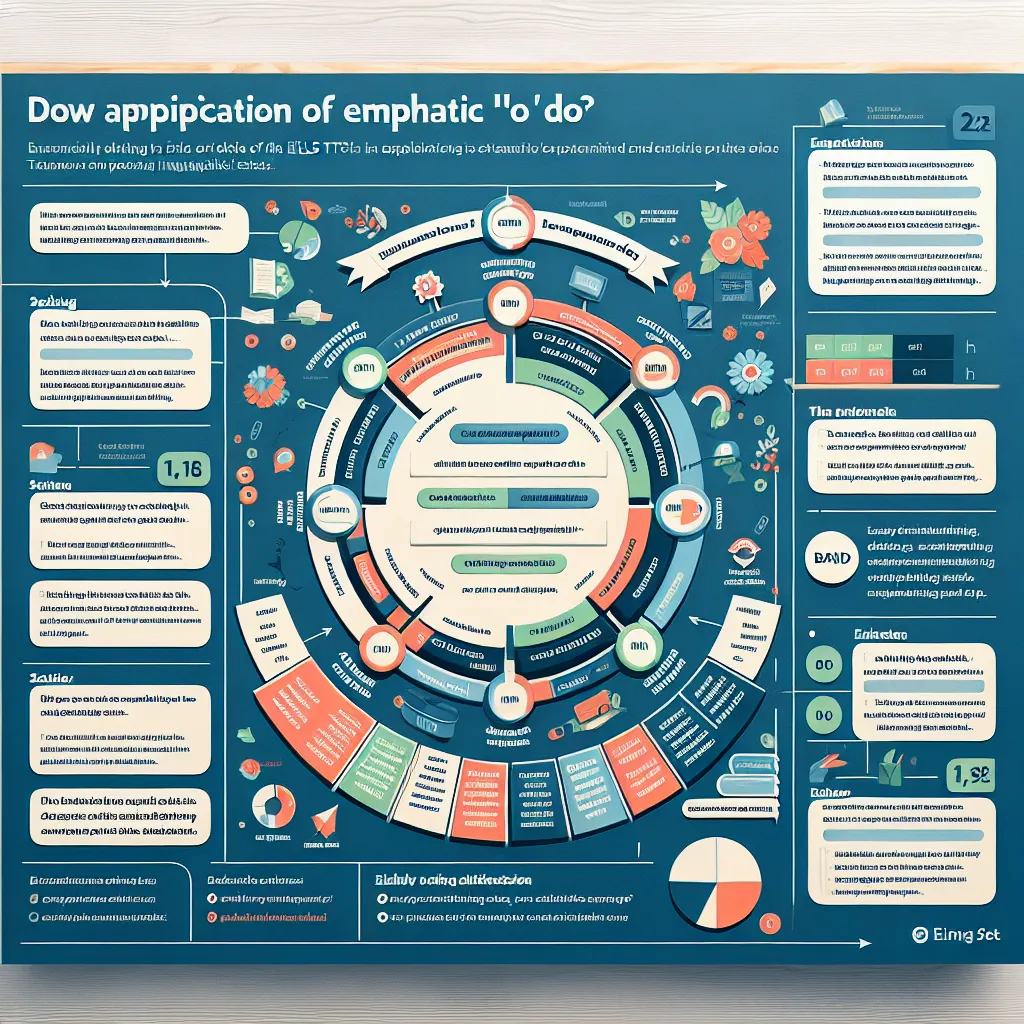Emphatic structures with “do” are powerful grammatical tools that can significantly enhance your IELTS performance. These structures are frequently used in both the speaking and writing sections of the test to add emphasis, contrast, or express surprise. In this article, we’ll explore how to effectively use these structures to boost your IELTS score.
Nội dung bài viết
- Understanding Emphatic Structures with “Do”
- Basic Formula:
- Using Emphatic “Do” in IELTS Speaking
- 1. Expressing Strong Agreement
- 2. Contradicting a Negative Assumption
- 3. Emphasizing a Point
- Emphatic “Do” in IELTS Writing
- 1. In Thesis Statements
- 2. To Introduce Contrasting Ideas
- 3. In Conclusion Paragraphs
- Common Mistakes to Avoid
- Advanced Usage for Higher Band Scores
- Conclusion
 Emphatic Do Structure
Emphatic Do Structure
Understanding Emphatic Structures with “Do”
Emphatic structures with “do” involve using the auxiliary verb “do” (or its forms “does” and “did”) to add emphasis to a positive statement or command. This structure is used to stress the truth or importance of what is being said, often in contrast to what someone else has said or believes.
Basic Formula:
Subject + do/does/did + base form of the main verb + rest of the sentence
Let’s look at some examples:
- “I do enjoy studying for IELTS.”
- “She does understand the importance of practice tests.”
- “They did complete all the listening exercises yesterday.”
In each of these sentences, the auxiliary “do” adds emphasis to the action, making it stronger and more assertive.
Using Emphatic “Do” in IELTS Speaking
In the IELTS Speaking test, using emphatic “do” can help you sound more confident and add variety to your language. Here are some ways to incorporate it:
1. Expressing Strong Agreement
Examiner: “Do you think studying abroad is beneficial?”
You: “I do believe studying abroad is extremely beneficial. It not only improves language skills but also broadens one’s cultural perspectives.”
2. Contradicting a Negative Assumption
Examiner: “Some people say that traditional books are becoming obsolete.”
You: “While digital media is popular, I do think traditional books still have a significant place in our society. They do offer a unique reading experience that digital formats can’t replicate.”
3. Emphasizing a Point
“Environmental issues are important, but I do feel that individual actions can make a difference.”
Emphatic “Do” in IELTS Writing
In IELTS Writing, emphatic structures with “do” can add sophistication to your essay and help emphasize key points. Here’s how you can use them effectively:
1. In Thesis Statements
“While some argue that technology hinders personal interactions, I do believe that it has overall enhanced our ability to connect with others globally.”
2. To Introduce Contrasting Ideas
“Although online education has its merits, traditional classroom learning does offer irreplaceable benefits in terms of social interaction and immediate feedback.”
3. In Conclusion Paragraphs
“In conclusion, while challenges exist, governments do have the capacity to implement effective measures to combat climate change.”
 Emphatic Do in IELTS
Emphatic Do in IELTS
Common Mistakes to Avoid
When using emphatic structures with “do,” be careful to avoid these common errors:
-
Using “do” with modal verbs:
Incorrect: “I do can speak English fluently.”
Correct: “I can speak English fluently.” or “I do speak English fluently.” -
Using “do” with “be” as the main verb:
Incorrect: “I do am excited about the IELTS test.”
Correct: “I am excited about the IELTS test.” -
Using the wrong form of the main verb:
Incorrect: “She does goes to the gym every day.”
Correct: “She does go to the gym every day.” -
Overusing emphatic “do”:
While it’s a useful structure, overusing it can make your speech or writing sound unnatural. Use it sparingly for maximum effect.
Advanced Usage for Higher Band Scores
To aim for higher band scores (7 and above), consider these advanced applications:
-
Combining with other structures:
“Not only do I believe in the importance of renewable energy, but I also think governments should invest more in research.” -
In cleft sentences:
“It is the government that does have the power to implement significant environmental changes.” -
With adverbs for extra emphasis:
“I do strongly feel that education should be accessible to all, regardless of socioeconomic background.” -
In concessive clauses:
“While I do appreciate the concerns about privacy, I believe the benefits of big data outweigh the risks.”
Conclusion
Mastering emphatic structures with “do” can significantly enhance your IELTS performance. By adding emphasis, expressing contrast, and showing confidence in your opinions, you can impress the examiner and potentially boost your band score. Remember to practice using these structures in various contexts, and always aim for natural and appropriate usage. As you prepare for your IELTS test, do make sure to incorporate this powerful grammatical tool into your language repertoire.
For further practice, try incorporating emphatic “do” structures in your responses to sample IELTS questions, especially when discussing controversial topics or expressing strong opinions. The more you use these structures naturally, the more impressive your English will sound in the test.


